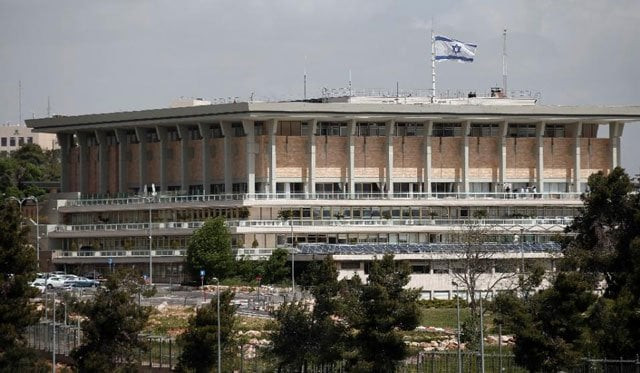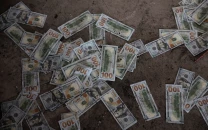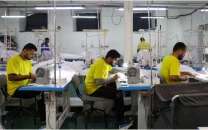Israel takes first step to pass contentious NGO law
Bill has sparked international criticism with US and EU ambassadors to Israel expressing concern over its implications

The Israeli parliament has passed the first reading of a controversial bill that compels NGOs that receive most of their funding from foreign governments to declare it in official reports. PHOTO: AFP
The proposal — denounced by critics as likely to encourage a witch-hunt against leftist groups that campaign for the defence of Palestinian rights — was passed in a 50-43 vote following a tense debate. Two more readings of the bill by the parliament, or Knesset, are required for it to become law.
The text, which is supported by Prime Minister Benjamin Netanyahu, has renewed tension between one of the most right-wing governments in Israeli history and the United States and the European Union.
Justice Minister Ayelet Shaked, who proposed the law, argues it will boost transparency as the government seeks to fight foreign interference and attempts to delegitimise the state of Israel. She has insisted it does not target any specific NGO.
Israeli media reported that Shaked said during the debate preceding the vote that "after years in which the left wing exploited the issue of transparency and used it as an administrative and political tool against the right wing, you began to think that transparency was your inheritance and began to treat it like your own property". "Transparency doesn't belong to you and is not your inheritance," she was quoted as saying.
The text does not specifically refer to leftist organisations, but they are expected to be most affected as right-wing NGOs, such as those supporting Israel's occupation of the West Bank, tend to rely on private donations, particularly from within the United States.
Several left-wing Israeli NGOs receive large percentages of their funding from abroad, including from European governments. The bill has sparked international criticism, with the US and EU ambassadors to Israel both expressing concern over its implications.
It stipulates that NGOs receiving more than half of their funding from foreign governments will have to declare it in all their official reports. At the request of Netanyahu, however, a proposed requirement for NGO members to wear a badge indicating their organisation is funded by a foreign country was dropped.
"I do not understand how a requirement for transparency is anti-democratic; the opposite is true," Netanyahu said last month. "In a democratic regime, we need to know who is financing such NGOs, from the right, the left, up or down."
Israeli left-wing NGOs have expressed concern at increasingly personal attacks they have been subjected to in recent months, including regular harassment and even death threats. Settlement watchdog Peace Now has called the bill "a hate crime against democracy" while the United States has warned it could have a "chilling effect".
In a statement on Tuesday, Peace Now said "the passing of the NGO bill is a violent and discriminatory act of public shaming against those criticising the government. "Despite Netanyahu's statements, the bill resembles the situation in Russia and not that in the United States or in any other democratic country," it said.
In a letter on Monday, 50 members of the European Parliament said it was "part of a worrying trend, promoted and condoned by the current Israeli government, to restrict, delegitimise and stifle the work of NGOs, organisations, artists, writers, and thinkers who may be critical of current Israeli government policy."
Shaked, a member of the far-right Jewish Home party, has repeatedly accused foreign-backed NGOs of "blatant interference in internal Israeli affairs by foreign governments". She has cited a UN inquiry into the 2014 summer war in Gaza, which concluded that both Israel and Palestinian militants may have been guilty of war crimes.
Shaked said the probe relied on evidence from foreign-backed Israeli NGOs B'Tselem, Adalah and Breaking the Silence.



















COMMENTS
Comments are moderated and generally will be posted if they are on-topic and not abusive.
For more information, please see our Comments FAQ